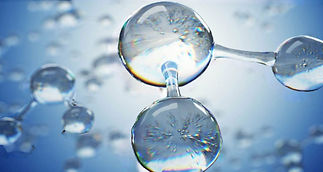
Ozone Water
Ozonated water is increasingly being used in dentistry as a natural antimicrobial agent to help treat and prevent dental infections, particularly in periodontal and peri-implant diseases. Ozone (O₃), a triatomic form of oxygen, has strong oxidative properties that make it highly effective against bacteria, viruses, fungi, and protozoa without the risk of developing resistance, unlike antibiotics.
.
How Ozonated Water Works
-
When ozone gas is dissolved in water, it creates ozonated water, which maintains ozone’s antimicrobial properties in a safe, biocompatible liquid form.
-
Upon contact, ozone oxidizes the cell walls of microorganisms, leading to rapid cell lysis and death.
-
Ozonated water also increases local oxygen availability, which helps support tissue healing and regeneration.
Clinical Applications in Dentistry
1. Periodontal Therapy
-
Used as an irrigant during scaling and root planing.
-
Effectively reduces the microbial load in deep periodontal pockets, including anaerobic bacteria like Porphyromonas gingivalis and Treponema denticola.
-
Promotes faster healing of gingival tissues and reduces inflammation.
2. Peri-implant Mucositis & Peri-implantitis
-
Ozonated water can be used to irrigate peri-implant sulci.
-
Helps decontaminate the implant surface and surrounding tissues without harming the titanium surface or soft tissues.
-
May support re-osseointegration in early peri-implantitis when used as part of a comprehensive protocol.
3. Endodontic Treatment
-
Serves as an irrigant in root canal therapy, especially as an adjunct to traditional agents like sodium hypochlorite.
-
Penetrates dentinal tubules and eliminates resistant microorganisms such as Enterococcus faecalis.
4. Surgical Applications
-
Used to rinse extraction sites, implant placements, and post-operative areas.
-
Reduces the risk of dry sockets, infection, and promotes hemostasis and faster healing.
Advantages of Ozonated Water in Dental Care
-
Broad-spectrum antimicrobial without toxicity to human cells at therapeutic concentrations.
-
Non-allergenic and non-mutagenic.
-
Improves tissue oxygenation, enhancing the healing response.
-
Leaves no residue or resistance, unlike chemical antiseptics or antibiotics.
Limitations and Considerations
-
Ozone is unstable and must be generated chairside immediately before use.
-
Requires specialized equipment, such as an ozone generator.
-
Proper training is essential for safe and effective use.